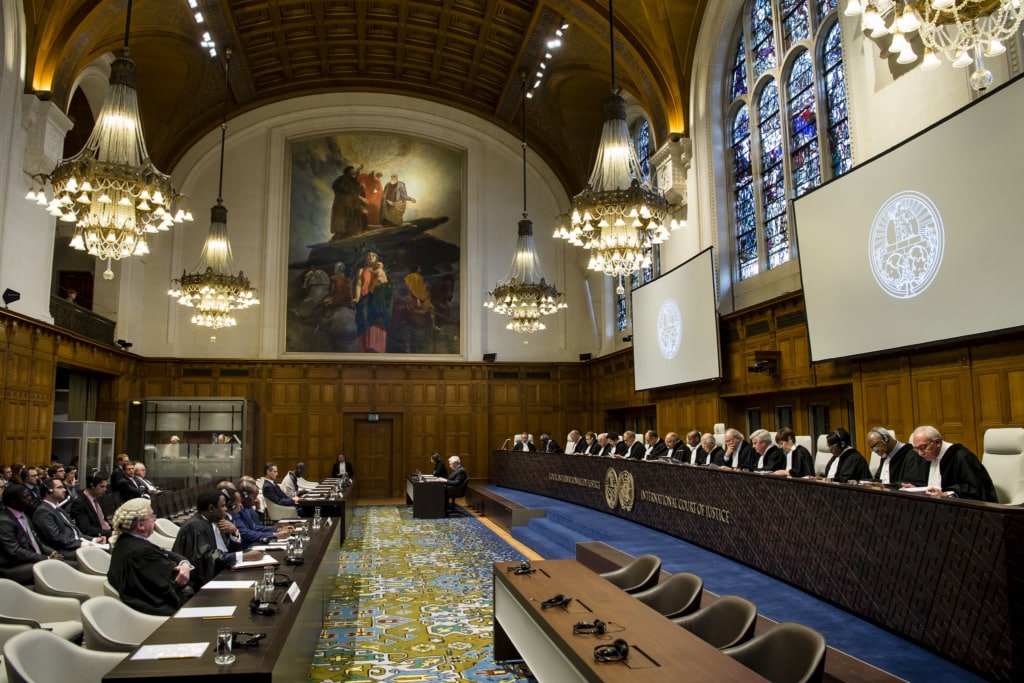Why Canada’s Terrorism Exception Does Not Violate International Law
Like the United States, Canada has an exception in its State Immunity Act (SIA) for state supporters of terrorism. Canada has put Iran and Syria on the list of states against which claims for terrorism may be brought in Canadian courts. Under the SIA, Canadian courts have found Iran liable for shooting down a Ukraine…
Continue ReadingDubai Court Weighs in on U.S.-Iran Sanctions
Subject to certain exceptions, current U.S. sanctions law prohibits U.S. persons from supplying goods, technology, or services to Iran or its government. Consistent with these laws, U.S. insurers and reinsurers often include in their policies a Sanctions Clause, specifying they will not pay out on policies if doing so would violate U.S. sanctions laws. Such…
Continue ReadingU.S. and Foreign Litigation Relating to the Events in Gaza
High profile cases against Israel and Germany have been bought before the International Court of Justice, alleging violations of international law with respect to events in Gaza following the October 7, 2023, attacks by Hamas. The prosecutor of the International Criminal Court is seeking five warrants of arrest against Israelis and Hamas leaders for war…
Continue ReadingMore Choice of Law in Terrorism Cases
The U.S. District Court for the District of Columbia (DDC) hears a lot of state-sponsored terrorism cases. The plaintiffs in these cases typically assert a cause of action under 28 U.S.C. § 1605A(c). This action is, however, only available to individuals who are either (1) a U.S. national, (2) a U.S. servicemember, (3) a U.S….
Continue ReadingFurther Thoughts About Terrorism Exceptions and State Immunity
As regular readers know, Iran has sued Canada at the International Court of Justice (ICJ), arguing that the terrorism exceptions in Canada’s State Immunities Act (SIA) violate customary international law. The United States also has terrorism exceptions in its Foreign Sovereign Immunities Act (FSIA) for actions against state sponsors of terrorism and for actions based on international terrorism in the…
Continue ReadingGovernmental and Non-Governmental Acts in Terrorism Exceptions to Sovereign Immunity
The Islamic Republic of Iran (“Iran”) brought proceedings in the International Court of Justice (“ICJ”) against Canada on June 27, 2023, alleging that Section 6.1(1) of Canada’s State Immunity Act (SIA), its “terrorism exception,” violates Iran’s sovereign immunities from jurisdiction and enforcement under customary international law. Section 6.1(1) creates an exception to the jurisdictional immunity…
Continue ReadingChoice of Law in Terrorism Cases
The U.S. District Court for the District of Columbia (DDC) is routinely called upon to adjudicate civil cases where plaintiffs bring claims against foreign sovereigns on behalf of themselves or relatives who were killed or injured in terrorist attacks overseas. If the plaintiff is neither a U.S. national, a U.S. servicemember, a U.S. government employee,…
Continue ReadingWhy Terrorism Exceptions to State Immunity Do Not Violate International Law
[Editor’s Note: This post also appears at Just Security.] On June 27, 2023, Iran sued Canada at the International Court of Justice (ICJ), arguing that the terrorism exceptions in Canada’s State Immunities Act (SIA) violate customary international law. As Professor Maryam Jamshidi noted at Just Security, it seems that the main target of Iran’s action…
Continue ReadingInconvenience, Forum Selection Clauses, and Afghanistan
The U.S. Supreme Court has long held that a forum selection clause should not be enforced when “trial in the contractual forum will be so gravely difficult and inconvenient” that the plaintiff “will for all practical purposes be deprived of his day in court.” In announcing this rule, the Court recognized that a legal right…
Continue ReadingWhy the Indictment Against Halkbank Must Be Dismissed
In 2019, the United States indicted Turkiye Halk Bankasi (Halkbank), a Turkish state-owned bank, alleging a multiyear scheme to evade U.S. sanctions against Iran by using fraudulent transactions to transfer the proceeds of oil and gas sales to Iran. Last month, the Supreme Court rejected Halkbank’s claim of immunity under the Foreign Sovereign Immunities Act…
Continue Reading







